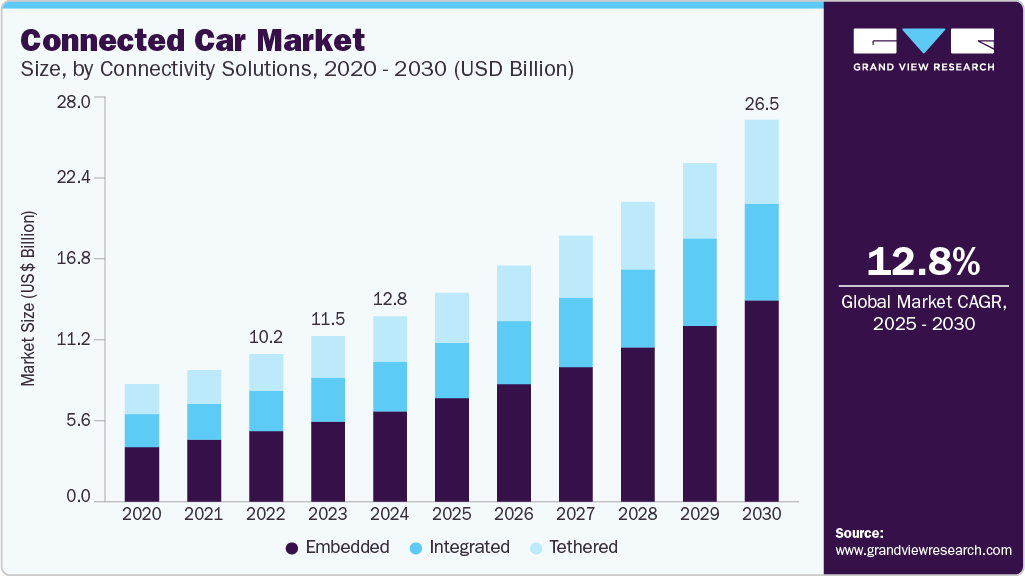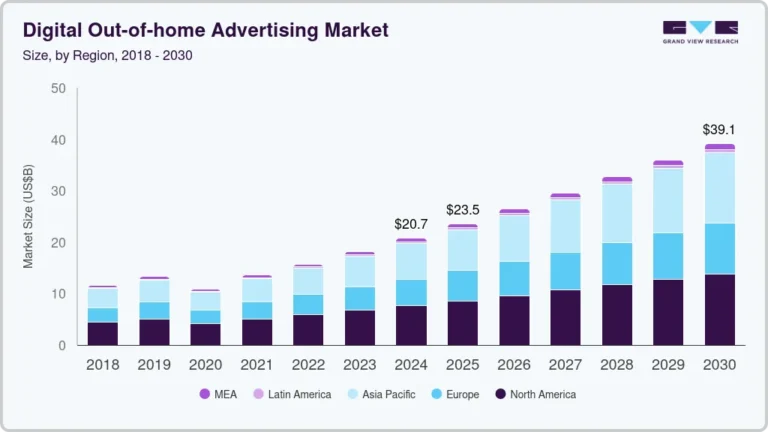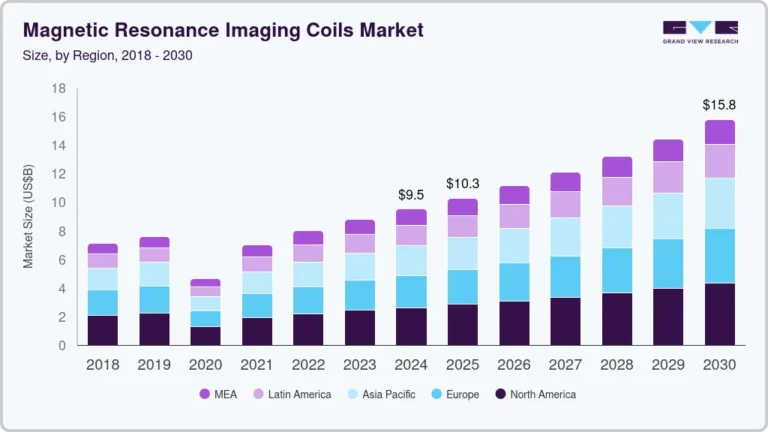Connected Car Market Size, Share & Trends Analysis growing at a CAGR of 12.8% from 2025 to 2030

The global connected car market size was estimated at USD 12,843.0 million in 2024 and is projected to reach USD 26,470.7 million by 2030, growing at a CAGR of 12.8% from 2025 to 2030. The market is being driven by the rising integration of advanced driver assistance systems (ADAS), intelligent navigation capabilities, and immersive digital cockpit technologies aimed at enhancing vehicle performance and user experience.
Key Market Trends & Insights
- In terms of region, North America was the largest revenue generating market in 2024.
- Country-wise, India is expected to register the highest CAGR from 2025 to 2030.
- In terms of segment, embedded accounted for a revenue of USD 7,152.7 million in 2024.
- Embedded is the most lucrative connectivity solutions segment registering the fastest growth during the forecast period.
Market Size & Forecast
- 2024 Market Size: USD 12,843.0 Million
- 2030 Projected Market Size: USD 26,470.7 Million
- CAGR (2025-2030): 12.8%
- North America: Largest market in 2024
Request a free sample copy or view report summary: https://www.grandviewresearch.com/industry-analysis/connected-car-market/request/rs1
The growing adoption of electric and autonomous vehicles is further accelerating the demand for seamless connectivity and real-time data processing within vehicles.
In addition, regulatory mandates, government incentives, and evolving safety and emission standards are catalyzing the rollout of connected infrastructure across developed and emerging markets. These advancements are collectively propelling the growth of the connected car industry.
The connected car industry is revolutionizing how drivers and passengers interact with their vehicles. With advanced infotainment systems, voice control, and personalized services, cars are becoming more integrated with everyday life. Enhanced connectivity features like seamless smartphone integration and smart assistant technologies are increasingly embedded into new vehicles. This shift provides users with a more intuitive and enjoyable driving experience, making connected cars an essential part of modern transportation.
Connected car technology is transforming vehicle maintenance by enabling real-time data collection and analysis. Manufacturers and service providers can now monitor vehicle health remotely and diagnose issues before they become critical. The ability to predict and preemptively address mechanical failures through data-driven insights minimizes downtime and enhances vehicle longevity. This technology is reshaping the way car owners interact with their vehicles, improving reliability and reducing costly repairs.
In the connected car industry, safety has become a paramount concern. Advanced safety features powered by real-time data transmission, such as automatic emergency braking and lane-keeping assistance, are significantly improving road safety. Connectivity allows for faster response times during critical moments, reducing the likelihood of accidents. These innovations in the connected car industry make vehicles not just smarter but safer for everyone on the road.






